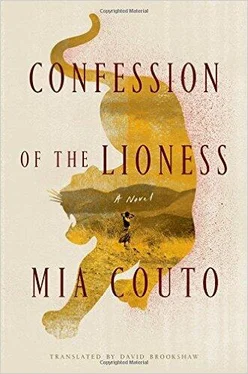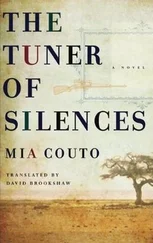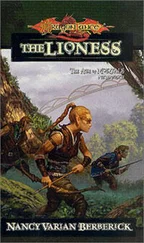* * *
The writer has finished his imaginary letter, and folds the paper carefully so as to slip it into an envelope. He zips open his briefcase and places it inside, among various other envelopes. The letter may be a fake, but the performance is a convincing one. And, once again, I’m assailed by a memory. Far from us, Henry Bullseye would complete the same ritual: He would invariably place the letter in an envelope, lick the flap and stick it down, and put it in his travel bag. He would take those letters on his lengthy hunting expeditions. He also carried with him a blurred photograph of Martina.
It’s like that so that others can see it, but can’t look too hard.
He was a jealous man, old Henry! In fact his jealousy became a reason for bloodletting and tragedy.
* * *
Through the window of the plane, the last signs of daylight dissolve among the clouds. I recall my mother’s fable condemning the Sun for its petulance and the way I, maybe because of this story, always feel myself awakening as darkness begins to fall. I belong to neither day nor night. Sunset was the time when I would return home, exhausted from my endless games in those backyards that opened up like a vast savanna where my imagination hunted its prey. Roland would look at me, jealous of my intimacy with the world. Roland belonged to the house. I belonged to the street.
Mother, please don’t make me have a bath yet. Let me stay dirty for just a bit longer.
The sweat and dust that covered me prolonged the rapture of my forests invented in the back gardens of the neighborhood. As my father was almost always absent, Martina Bullseye was able to exercise her mother’s complacency with sovereign freedom. What came as a relief to us seemed to weigh heavily on her heart. During those long periods of solitude, our mother would continue to fulfill the ritual of those commissioned letters: She would put on her most elegant dress — in fact, the only dress she possessed — and pretend to listen to the absent Henry Bullseye’s dictation. She performed the act of writing with such devotion that we could clearly hear our father’s slow drawl echoing down the hallway.
* * *
Why are we going so fast?
The writer doesn’t answer. Ever since the plane landed in Pemba, we have begun a long journey by road to Palma, the district capital. We can look forward to a nine-hour drive along poorly maintained sandy roads.
There are four people in the all-terrain vehicle: in front, myself and Gustavo, the writer; in the back, Florindo Makwala, the district administrator, and his outsized spouse, Dona Naftalinda. The First Lady, as the administrator insists on calling her, justifies her name: She is so heavy that the vehicle has developed a dangerous list on the side where she is sitting.
Gustavo is the driver. I chose to remain free to watch the bush that lines the road. For the last two hours, the scenery has been no more than a monotonous procession of scrawny, bare trees, devoid of foliage.
Why such speed? I ask again.
The question has become an order. Gustavo needs to be aware of who is leading this expedition. We are two opposites. The writer is white and short. I’m a mulatto and tall. The writer shoots his mouth off and looks at people right in the eye. On the contrary, the human eye robs me of my soul; the more human the gaze, the more of an animal I become.
Is there still far to go? Gustavo asks, mumbling so low that no one hears him.
At last, the man complies: The car slows down while I give him a smile of unconcealed scorn. I glance over at the rear seat.
Are you asleep, Dona Naftalinda?
Her silence is in concert with the surrounding countryside: It’s as if the world were yet to be born. Inside the car, the hush is even heavier. I know that silence and the way, on very hot days, it sinks into us. It begins by inhibiting our very desire to talk. Later, we’ve even forgotten what it was we wanted to say. Before long, even the act of breathing becomes a waste of energy.
Archie’s right, drive more slowly , Dona Naftalinda complains. The road’s in a shocking state, and we’re being thrown around in the back.
Naftalinda’s tone is adjusted to her status: It has the geniality of someone who knows so well what she wants that she has no need to issue a command. My gaze ranges over the landscape like fire licking the elephant grass. Where the writer sees trees, I see places to shelter made out of shadows. In one of these shadows, the ill-famed lions, eaters of people and of dreams, will be resting.
* * *
So absorbed am I reviewing the shadows that I am unaware of a lively monologue that has begun from the direction of the backseat. The administrator is rattling on about automobiles, makes, models, countries of origin, and the years in which his favorite vehicles were manufactured. And how he could do with an automobile like this one provided by the company that contracted us.
Is there still far to go? I ask, merely to change the subject.
The administrator repeats what he has already said a dozen times: Not far at all. In fact we’re almost there. The writer asks:
It’s strange, one doesn’t see any people around. Doesn’t anyone live here?
Florindo Makwala stiffens, offended. Was the visitor suggesting that all he ruled over were stones and dust?
You’ll see them in a little while. The people. There are lots of them.
* * *
Stop, stop the car! I order, the door already open and half of me outside the vehicle. The next minute, I creep over toward some bushes on the side of the road. There are vultures circling high above. Maybe there’s a rotting corpse somewhere around here. It’s a false alarm. I signal the others to get out of the vehicle.
Let’s take a break.
Dona Naftalinda is lowered from the vehicle. The long-suffering jeep’s suspension groans. The anxious administrator warns:
Help her down. Don’t let her fall, for God’s sake don’t let her fall.
Don’t you dare touch me, husband. Don’t forget it’s forbidden.
Various arms are raised to help in the operation to unload the First Lady. I hesitate, unsure where to place my hands. I’m afraid my arms will get lost among folds and rolls of fat. In front of me, a huge backside darkens the day, like a sudden eclipse of the sun.
If I’d known, I would have brought a crane , the writer murmurs in my ear.
Once on the ground, Naftalinda whispers something to her husband. The administrator mutters awkwardly between his teeth.
My wife needs to go into the bush.
She can go , I answer curtly.
She’s scared.
Go with her.
She would rather you kept guard over her.
In these, as in other matters, it’s better if the husband does that.
It’s not that I’m scared , Naftalinda declares, with the air of an empress. But I’ve heard that the lions only kill women. I don’t know whether, as First Lady, I’m also included on their menu.
You can be sure that you are , the writer comments.
Over there’s safe , I assure her, pointing to some rocks in front of us. You can go, Dona Naftalinda, we’ll watch over things from here.
To distract ourselves from our embarrassing wait, the writer pretends to become interested in my rifle and admits:
There was a time when I dreamed of using a gun; I wanted to be a guerrilla fighter. In those days, we used to say that freedom would be born from the barrel of a gun.
So did it happen?
Freedom?
No. I’m asking whether you became a guerrilla.
Читать дальше












